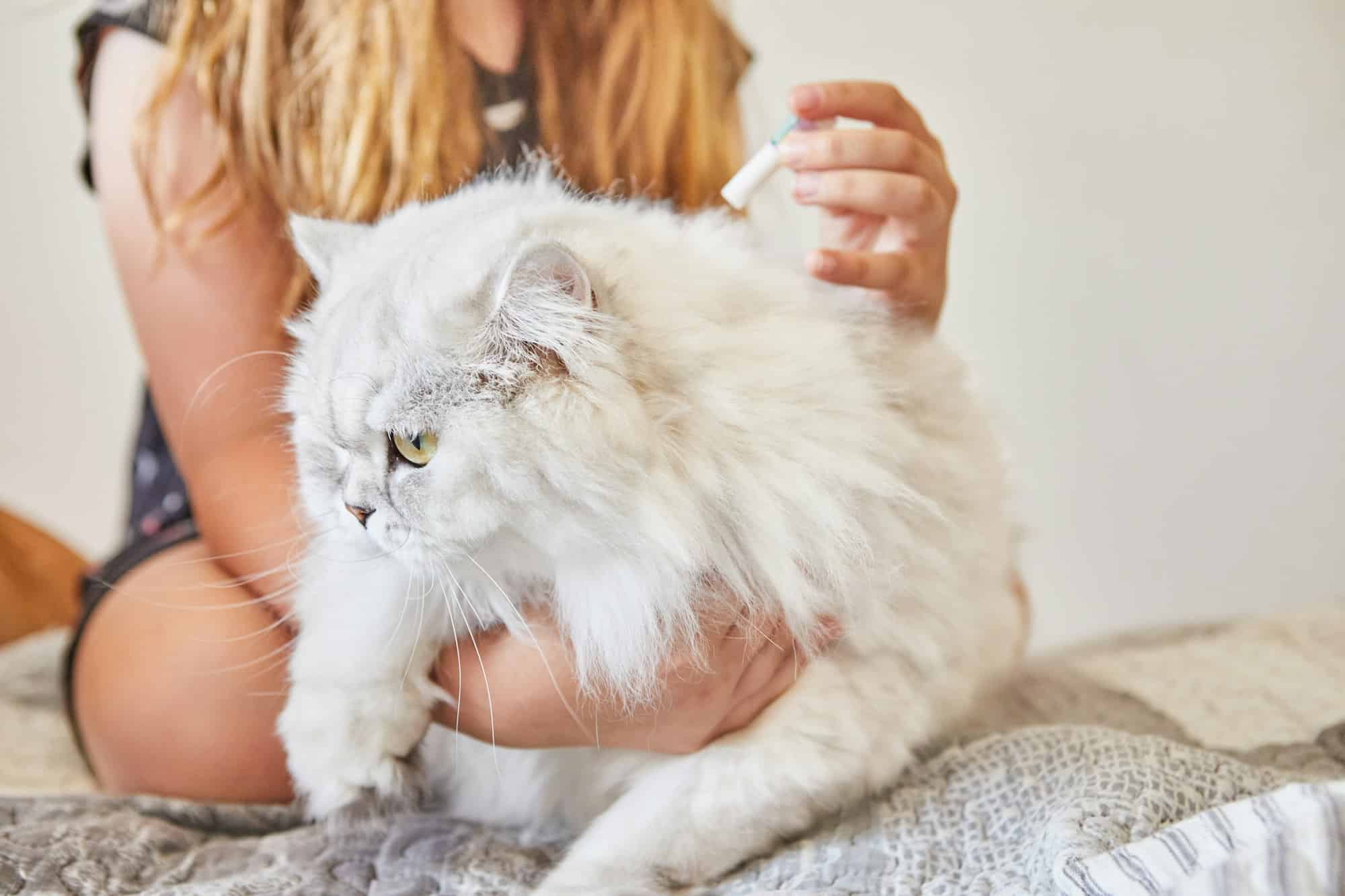Cats, like any other living beings, can become pawns in the hands of fleas. Fleas are tiny insects that can invade your cat’s skin, causing discomfort and potential health problems. These pests are not particular about their hosts and will readily infest cats, dogs, and even humans. However, when your furry friend has sensitive skin, picking the right treatment becomes even more crucial to avoid further discomfort. In this article, we delve into the best flea treatment options for your sensitive-skinned pet.
Understanding Fleas and Their Lifecycles
Before diving into the world of flea treatments, it’s important to understand what you’re dealing with. Fleas are small, wingless insects that feed on the blood of their host. They are agile and quick, capable of jumping up to two feet – quite a feat for such a tiny creature.
Have you seen this : How to Train an English Bulldog to Perform Basic Commands Without Overexertion?
The life cycle of a flea comprises four stages – egg, larvae, pupae, and adult. This is essential knowledge as it helps to understand why some treatments target certain life stages and not others. Understanding this lifecycle can help you make the most informed decision when it comes to selecting the best product for your cat.
Flea Treatment Options for Cats
There are a myriad of flea treatment options available on the market. But how do you pick the one that is right for your sensitive-skinned feline friend? Let’s explore the most common ones and their implications for cats with sensitive skin.
Topic to read : What Are the Best Low-Impact Exercises for a Dog with Hip Dysplasia?
Topical Treatments
Topical treatments are applied directly on your cat’s skin, usually at the back of the neck where they cannot easily reach. These treatments are absorbed through the skin and distribute the active ingredient across the body. They kill adult fleas and often inhibit the growth of eggs and larvae. However, some cats may have reactions to these treatments, particularly if they have sensitive skin. It is always best to consult with your veterinarian before starting any new treatment regimen.
Oral Treatments
Oral treatments are another popular option for flea prevention and treatment. These products are typically given once a month and work by disrupting the flea’s lifecycle. They can kill adult fleas, larvae, and prevent the development of eggs. However, because these are systemic treatments, they may cause gastrointestinal upset in some cats, especially those with sensitive skin or other underlying health issues.
Flea Collars
Flea collars are a preventative measure that offer long-term protection against fleas. They typically contain insecticides that kill fleas on contact before they can bite and feed. However, some cats may be sensitive to the ingredients in flea collars and may develop skin reactions.
Choosing the Best Treatment for Your Cat
Ultimately, the best flea treatment for your sensitive-skinned cat will depend on several factors including their overall health, lifestyle, and of course, their skin sensitivity. This is where a discussion with your veterinarian becomes invaluable.
Start by discussing your cat’s health history and lifestyle with your vet. Are they primarily an indoor or outdoor cat? Do they have any underlying health conditions? How severe is their sensitivity? This information will help your vet recommend the most appropriate type of treatment.
It’s also important to consider your own lifestyle. For example, if you travel frequently or have multiple pets, a long-lasting treatment option like a flea collar might be more convenient. Or, if you prefer not to use pesticides on your pet, you might consider natural flea treatments.
A Note on Tick Prevention
Fleas aren’t the only pests that can infest your pet. Ticks are also common, and like fleas, they feed on the blood of their hosts. Many flea treatments also offer protection against ticks, but not all. If ticks are common in your area, you’ll want to ensure that the flea treatment you choose also provides effective tick prevention. If not, you may need to consider additional tick prevention products.
Navigating the world of flea treatments for your sensitive-skinned cat can seem daunting. But with a little knowledge and guidance from your vet, you can make an informed decision that will keep your feline friend both comfortable and pest-free. Remember, every cat is unique, and what works well for one might not work for another. It’s all about finding the best solution for your individual cat.
Natural Flea Treatments
For those who prefer more natural solutions for their pets, there are natural flea treatments available. These treatments range from essential oils to dietary supplements. Essential oils like lavender, cedarwood, and peppermint have properties that can deter pests. However, it’s crucial to remember that not all essential oils are safe for pets. Always consult with your vet before trying any new substance on your cat.
Diatomaceous earth is another natural treatment option. This is a non-toxic powder that can be used on your cat’s bedding or in areas where fleas are likely to infest. It works by breaking down the exoskeleton of the flea, causing them to dehydrate and die. Always choose food-grade diatomaceous earth and avoid applying it directly on your cat, as it can dry out their skin.
Supplements like brewer’s yeast and garlic are often suggested as natural flea repellents, but their efficacy is controversial, and garlic is known to be toxic to cats in certain amounts. Therefore, it’s always best to consult with your vet before adding any supplements to your cat’s diet.
In-Home Flea Control
Effective flea control extends beyond treating your pet; you must also consider your home environment. Fleas can live in carpets, furniture, and bedding, quickly turning your home into a breeding ground. Vacuuming regularly, especially in areas where your cat spends a lot of time, can help control the spread of fleas. Washing your pet’s bedding regularly can also help prevent infestations.
There are also environmental flea treatments available, such as sprays and powders. These treatments are designed to kill fleas in all stages of their life cycle. However, ensure any product you choose is safe for use around pets, particularly if your cat has sensitive skin.
Conclusion
Choosing the best flea treatment for your sensitive-skinned cat might involve a bit of trial and error as you find a solution that is both effective and gentle on your pet’s skin. Remember that flea control is not just about killing adult fleas. It’s about breaking the lifecycle of the fleas, which means killing the eggs and larvae too.
Be mindful of your cat’s overall health, lifestyle, and the severity of their skin sensitivity when selecting a treatment. Discuss these factors with your vet to find a regimen that best meets your cat’s needs. Also, consider your own lifestyle and whether you prefer conventional treatments or more natural alternatives.
Lastly, don’t overlook the importance of treating your home for fleas. By keeping your surroundings clean and using effective environmental treatments, you can prevent a full-blown flea infestation.
By following these steps, you can protect your cat from the discomfort of fleas and ticks, while also ensuring that their sensitive skin is not further irritated. With the right knowledge and guidance, you can provide your feline friend with a comfortable and pest-free life.






